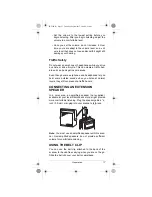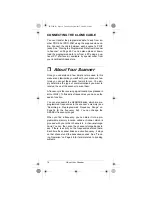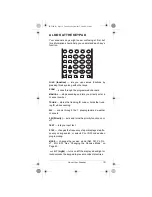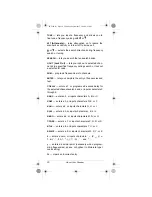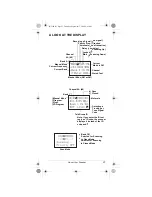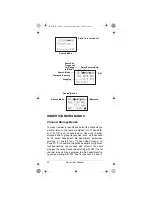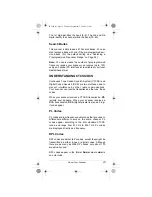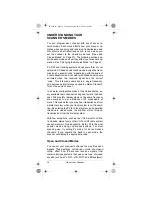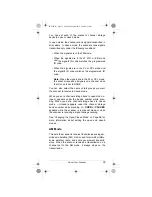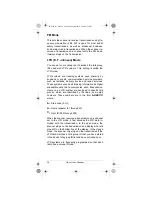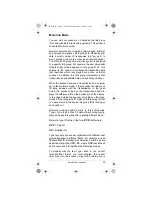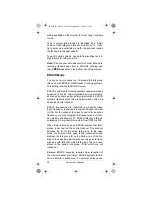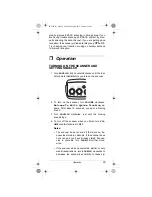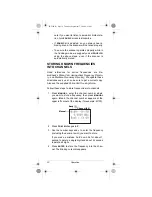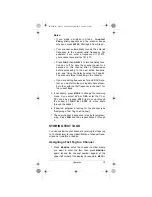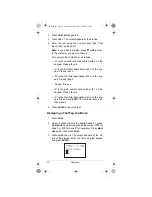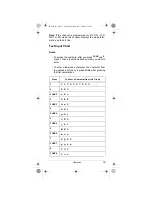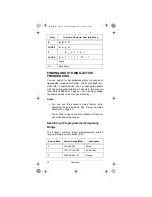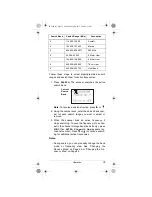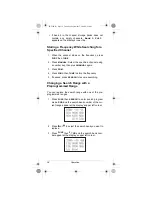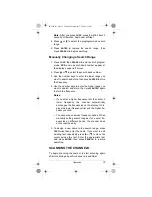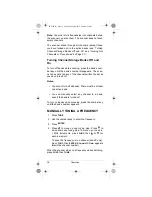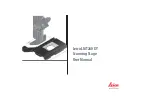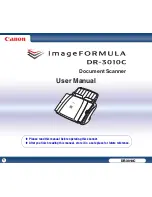
24
About Your Scanner
UNDERSTANDING YOUR
SCANNER’S MODES
You can program each channel with any of seven re-
ceive modes. Each mode affects how your scanner op-
erates when scanning and receiving transmissions, and
also affects what transmissions you receive when you
set the scanner to the closed mode (see “Open and
Closed Modes” on Page 57). The following sections de-
scribe each mode and how they affect your scanners op-
eration. See “Changing the Receive Mode” on Page 45.
PL, DPL and trunking systems all use some form of
cod-
ed squelch. Coded squelch techniques involve the trans-
mission of a special “code” signal along with the audio of
a radio transmission. A receiver with coded squelch only
activates when the received signal has the correct
“code.” This lets many users share a single frequency,
and decreases interference caused by distant transmit-
ters on the same channel.
In all major metropolitan areas of the United States, ev-
ery available radio channel is assigned to more than one
user. Public safety radio systems on the same frequency
are usually set up at a distance of 40 miles apart, or
more. This means that you may hear transmissions from
a distant system when your local system is not transmit-
ting. By entering the PL for a local system, and operating
the bank in closed mode, the scanner will not stop on
transmissions from the distant system.
With few exceptions, such as the VHF Aircraft and Ma-
rine bands, almost every other VHF or UHF radio system
uses some form of coded squelch. By far, PL is the most
popular mode among non-trunked systems. For most
scanning use, try setting PL mode for all non-trunked
channels. If you operate the bank in open mode, the
scanner will display the appropriate code.
Open and Closed Modes
You can set your scanner to change the way it receives
signals. These settings, called open mode and closed
mode, affect how the scanner receives signals from
communications systems that use some type of closed
squelch (such as PL, DPL, LTR, MOT, and ED systems).
20-522b.fm Page 24 Thursday, September 7, 2000 9:41 AM








